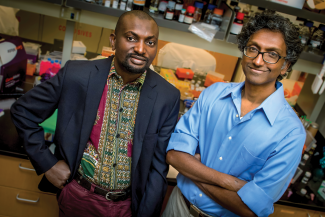Where else but in New Orleans—and at Tulane—can a Mardi Gras Indian Queen, a labor-union organizer, a Quaker activist and an immigrants-rights advocate team up with chemistry, anthropology and art history professors to teach graduate-level humanities students over jazz, poetry and red beans and rice?
For more than three years, that’s what the Tulane Mellon Graduate Program in Community-Engaged Scholarship in the Humanities has done at various times. Now, thanks to a new $1.5 million grant from The Andrew W. Mellon Foundation, this signature, multidisciplinary program based at the School of Liberal Arts is set to widen its scope to include undergraduates, new community relationships through more public events and more groundbreaking work on a national level.
Launched in 2017 with an initial $1.5 million from the foundation, the Tulane Mellon Graduate Program is a project of the Office of the Provost and the School of Liberal Arts in conjunction with the Center for Public Service.
A cohort of 20 participants meets regularly for two years through the Mellon Graduate Program. Each cohort has 12 graduate students, or “Mellon Fellows,” four Tulane faculty members and four community representatives with differing kinds of expertise. With special attention to equity and social justice issues, some projects have a local focus, from the creation of a renter’s guide to low-income housing tax credits in Orleans Parish to musical collaborations with Preservation Hall. Other projects go beyond New Orleans.
The Mellon Foundation’s latest grant will grow the program by increasing participation at both the undergraduate and graduate levels. Mellon Fellows will recruit juniors and seniors committed to racial and social justice by inviting them to join their diverse, interdisciplinary teams, as well as graduate students.
The Tulane program also will expand its local network by co-sponsoring community events that connect activists, artists and scholars and help lead a national dialogue on community-engaged humanities scholarship.
“The vibrant and complicated city of New Orleans provides the perfect setting for a wide array of fascinating and novel research projects on issues of deep relevance both within and beyond the academy,” Tulane Provost Robin Forman said. “In this program, city leaders serve as co-mentors for our students and enrich and broaden the perspectives of all participants.”































































